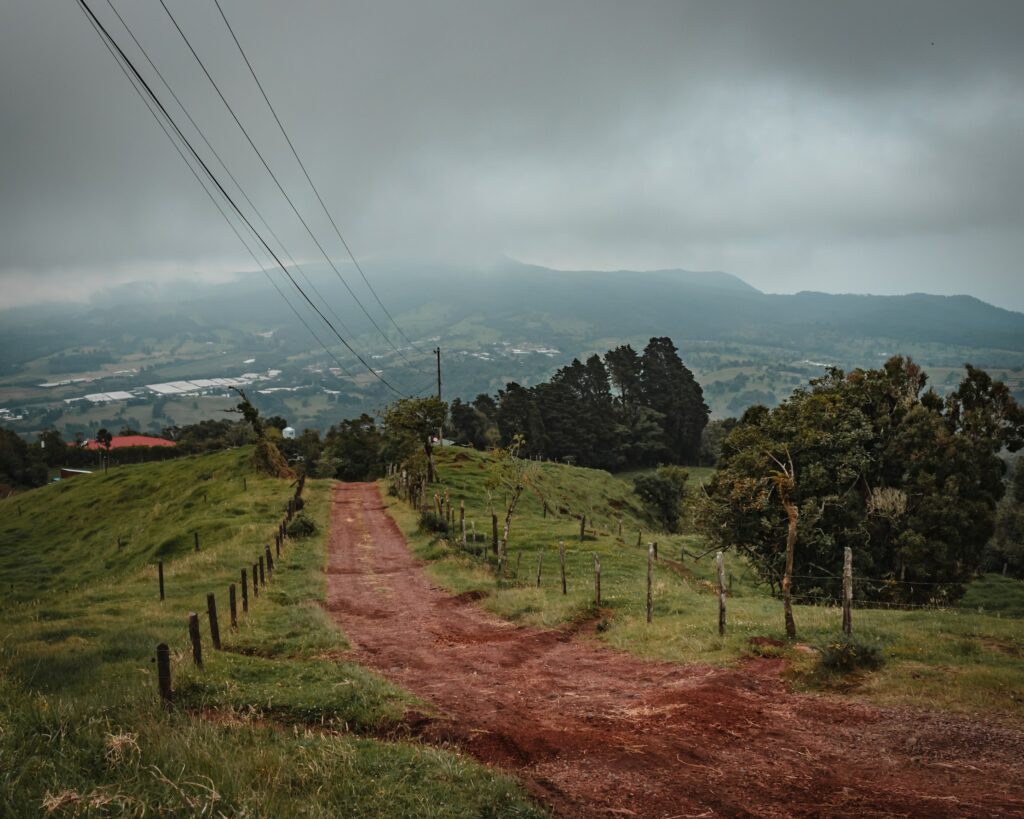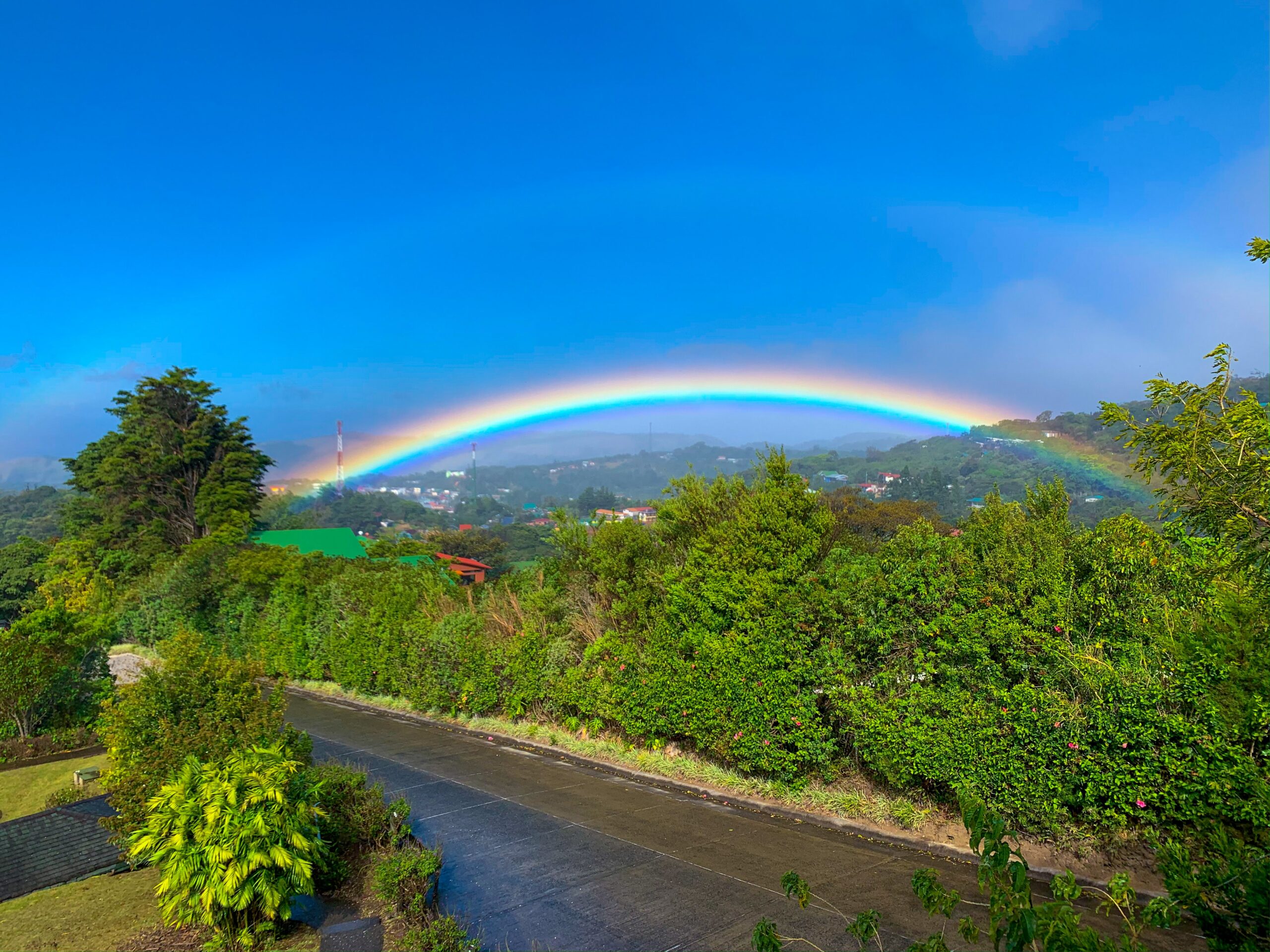“It always rains”, “the roads are terrible”, and “expat life is simple” — myths all. This article is designed to give you a primer on a few of the bigger myths about the country you call (or may call) home. Let’s dive into them.
Myth: Costa Rica is a South American island
Combining two geography myths. No, Costa Rica is not an island nor in South America. Costa Rica lies near the bottom of Central America with Nicaragua to the North, the Pacific Ocean to the West, the Caribbean Sea to the East, and Panama to the South.
Myth: Everyone speaks English
This is an international myth — that the world speaks English. While English is widely spoken in tourist areas and many people in Costa Rica have a basic understanding of the language, it is not as widespread as some might believe. In all cultures, trying to speak the host language is an important sign of respect and involvement. So, we recommend that if you do not speak Spanish you invest in some classes — as there is a vast array of online and in-person classes you can take.
Myth: Everything is cheap
True, if you are moving from Toronto, Denver, or Amsterdam it is cheaper, but Costa Rica is one of the most expensive countries in Central America. Primarily because as a small country away from larger import/export routes, both supply and demand dictate higher import costs. What you pay also varies greatly depending on where you live. Yes, you have more selection in international-friendly (read: tourist) communities, but you also tend to pay more. But not everything is expensive. Seek out deals, go to farmer’s markets, and try to forego the expensive US brand if you can find a Tico brand you like. And off-season (aka rainy/green season can be cheaper)

Myth: It’s always raining
OK, so this one isn’t fully a myth, but there are definitely “less rainy” times of the year. On the Pacific side of the country, the rainy season (May to November) (also known as “Green Season”) morphs into a hot and dry season (December to April). But even in the rainy season, it’s usually not all-day rain, but rather periods of rain with sun and perfect weather on either side. On the Caribbean side of Costa Rica, they say there are two seasons: rainy and REALLY rainy. And the pattern of dry vs. wet times can often be reversed.
Myth: Tropical means hot
At the beaches it is hot. In the dry season, it can be hot. But if you’ve ever spent time in a cloud forest or a microclimate around one of the many volcanoes, you will know that it can be quite cold. Layers are your friend, as are both sun and bug protection.
Myth: Jurassic Park was real
If you saw the film/s, you know that Jurassic Park is supposed to be an island off Costa Rica. Well, in the film they shipped in Dino DNA to that island and caused a cinematic catastrophe, but in reality, no dinosaurs are known to have called Costa Rica home. But there were mastodons and giant sloths roaming what is now Costa Rica so points for (sorta) accuracy!

Myth: Don’t Drink the Water and the Food is blah
Wrong and Wrong. The food isn’t bad, but it’s not “spicy” like many other Hispanic countries. But it is both flavorful and filled with locally sourced ingredients. I for one have become an expert on the perfect chifrijo.
And the water is quite good, although some older water systems may not taste incredible. Rule of thumb: if the locals are drinking tap, you can too. If they offer you a bottle, take it.
Myth: Don’t get sick here
I had always heard that this is a small, poor country without good healthcare. Nothing could be further from the truth. The national system (“La Caja”) is one that you pay into and the clinics are numerous and well-run. And for those under a “tourist” visa, there are several world-renowned hospitals. In fact, medical tourism is now an active part of the economy.

Myth: Costa Rica is a third-world country with poor infrastructure (roads, wifi, cell, etc.) and crime
Costa Rica is firmly a Western democratic country so by definition, she isn’t a 2nd world country. And while it may feel rural and “rustic”, she’s also not a 3rd world country. True, Costa Rica may be considered by some to be a developing nation or a Global South country, but neither of these is completely accurate either.
In terms of infrastructure, Costa Rica is an agrarian country that is incredibly hilly, and thus all moves at a slower pace.
Roads aren’t necessarily bad, but on windy roads, they can be slow and may have to go down to one lane to deal with topography. The key to successful driving here is always staying alert to what is happening around you. It’s not the roads, it’s how other drivers act on those roads.
Wifi and cell service are extensive and overall decent (better than many much larger, neighboring countries) — but like living in any country you can find areas with poor service.
And on the topic of crime, while Costa Rica is generally considered to be a safe country, it is not immune to crime. Petty theft, such as pickpocketing and theft from cars, is common in tourist areas. It’s always a good idea to be aware of your surroundings and take precautions to protect your belongings. And an international recommendation: don’t walk streets alone at night in the dark.
Myth: It’s easy for internationals to set up a life (banking, mail, medical, etc.)
Your Pura Vida wouldn’t be needed if this myth were true. But this country has systems in place that truly confuse internationals. Some are challenging because of long-standing cultural norms, and others are challenging for seemingly no reason, but once you understand the safeguards put in place to keep the country safe and free of some of the issues that other countries in the region face you understand why things are complex.
Trust us that nothing is simple. Buying a car or home takes much longer to process funds, but it is pretty straightforward if you have the right help. Opening a bank account, finding a plumber you can trust, dealing with Caja (medical system), or getting mail are all challenges that you need to hear from those that have come before you to best navigate.
Clearly, there are many more myths to bust, so send us some of those you have found. We love hearing from you!
And as always, Pura Vida!

